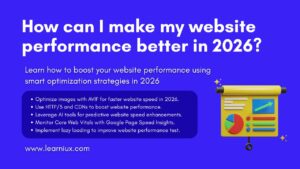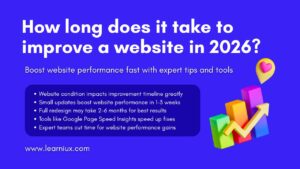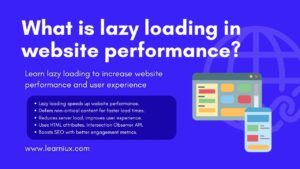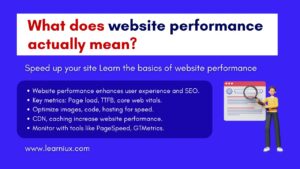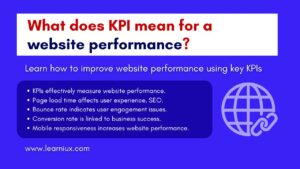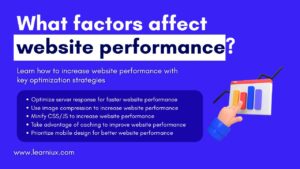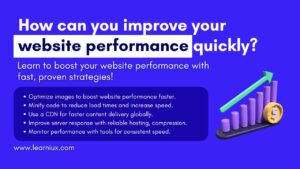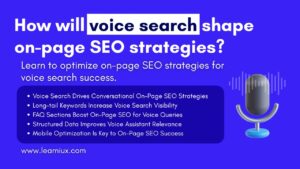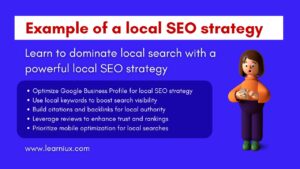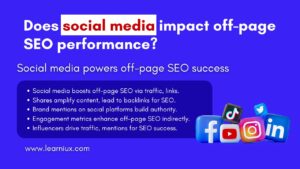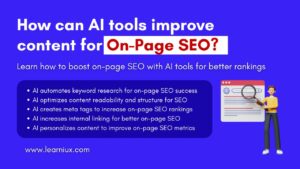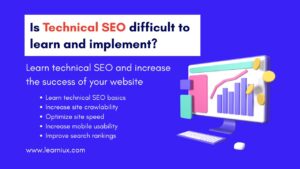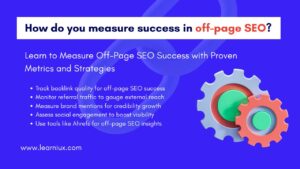Introduction
The digital marketing landscape is changing rapidly, with artificial intelligence (AI) at the forefront. AI tools are revolutionizing how businesses do search engine optimization (SEO), offering data-driven insights, automation, and precision that traditional methods struggle to match. By analyzing vast datasets, predicting user behavior, and optimizing content at scale, AI enables marketers to achieve measurable improvements in visibility and engagement. This article explores how AI tools are boosting SEO performance, delving into their applications, benefits, challenges, and future potential. Whether you’re a small business owner or an experienced marketer, understanding the role of AI in SEO can open up new opportunities for growth.
The integration of AI into SEO represents a broader shift toward intelligent automation. From content creation to technical audits, these tools streamline workflows, reduce human error, and provide actionable insights. This section lays the foundation for understanding how AI reshapes strategies to drive better SEO performance, ensuring websites rank higher and connect more effectively with target audiences.

SEO Performance Definition in the Digital Landscape
SEO performance measures a website’s ability to rank well on search engines, attract organic traffic, and convert visitors into customers. It involves a mix of technical, content, and user experience elements that align with search engine algorithms and audience expectations. Before exploring the impact of AI, it’s important to understand what constitutes strong SEO performance.
Key metrics that measure SEO performance
Effective SEO relies on quantifiable metrics. Organic traffic growth reflects how well a site attracts visitors without paid advertising. Keyword rankings indicate visibility for targeted search terms, while click-through rates (CTR) indicate how engaging your titles and meta descriptions are. Conversion rates measure whether visitors take desired actions, such as purchasing or signing up. Other key indicators include bounce rate, time on page, and backlink quality. Tracking these metrics provides a clear picture of SEO performance and highlights areas for improvement.
Evolving factors that impact SEO performance
Search engine algorithms are constantly evolving due to advances in machine learning and user behavior analysis. Google’s updates like BERT and MUM prioritize natural language understanding and user intent. Mobile optimization, page speed, and key web vitals now play a significant role in rankings. Additionally, changes in user behavior (such as increasing voice search usage or a preference for video content) demand adaptive strategies. Staying ahead requires agility, and AI tools provide the flexibility to respond to these dynamic factors, ensuring sustainable SEO performance.
Ways AI Tools Boost SEO Performance
AI tools are transforming SEO by automating repetitive tasks, uncovering insights, and optimizing strategies with precision. Their ability to process large amounts of data makes them indispensable for modern marketers aiming to boost SEO performance.
Automated Content Creation for Enhanced SEO Performance
Content is the cornerstone of SEO, and AI tools excel at creating high-quality, optimized content. Platforms like Jasper and Copy.AI create blog posts, product descriptions, and social media content tailored to specific keywords and audience needs. These tools analyze top-ranking pages to ensure that the content aligns with search intent, includes relevant terms, and maintains readability. For example, AI can create 2,000-word articles in minutes, embedding semantic keywords and LSI (Latent Semantic Indexing) terms to improve relevancy. By automating content creation, businesses save time while maintaining consistency, directly boosting SEO performance.
Furthermore, AI ensures that content is engaging and user-centric. Tools like Grammarly and Hemingway improve tone, grammar, and structure, while others suggest headlines with higher CTR potential. This combination of speed and quality is a key driver of SEO performance, leading to better rankings and user satisfaction.
Advanced Keyword Analysis to Boost SEO Performance
Keyword research is fundamental to SEO, and AI takes it to new heights. Tools like Ahrefs and SEMrush use machine learning to identify high-value keywords, predict search trends, and analyze competitor strategies. Unlike traditional methods, AI-enabled tools assess search volume, difficulty, and user intent in real time. For example, they can find long-tail keywords like “best eco-friendly running shoes for women,” which have low competition but high conversion potential.
AI also predicts future trends by analyzing historical data and user behavior. This foresight allows marketers to target emerging terms before competitors, gaining first-mover advantage. By refining keyword strategies, AI tools directly contribute to improved SEO performance, targeted traffic, and higher rankings.
AI-powered technical audits for superior SEO performance
Technical SEO ensures that search engines can effectively crawl and index a site. AI tools like Screaming Frog and Sitebulb automate comprehensive audits, identifying issues like broken links, duplicate content, or slow page load times. These platforms use machine learning to prioritize solutions based on results, ensuring effective optimization. For example, AI can flag missing alt text on images or recommend schema markup to increase rich snippet visibility.
Additionally, AI monitors site health in real time, alerting marketers to issues like server errors or mobile usability issues. By addressing these technical hurdles, AI tools improve crawlability and user experience, both of which are crucial for strong SEO performance.
Top AI Solutions for SEO Performance Optimization
Choosing the right AI tools can make or break an SEO strategy. Below are three leading platforms that deliver measurable improvements in SEO performance, each with unique strengths.
Surfer SEO for data-driven improvements in SEO performance
Surfer SEO analyzes top-ranking pages to provide actionable recommendations for content optimization. It evaluates factors like word count, keyword density, and title structure, ensuring that content aligns with search engine rewards. For example, Surfer might suggest adding 300 words to a blog post or increasing the use of secondary keywords. Its real-time content editor helps writers fine-tune drafts for maximum impact. By focusing on data-driven improvements, Surfer SEO consistently increases SEO performance for blogs, landing pages, and e-commerce sites.
Ahrefs AI Features to Strengthen SEO Performance
Ahrefs combines traditional SEO tools with AI-driven enhancements. Its Site Explorer uses machine learning to analyze backlink profiles, identifying high-authority link opportunities. The platform’s Content Gap tool suggests topics that competitors rank for but your site doesn’t, enabling targeted content creation. Ahrefs predicts keyword difficulty with greater accuracy, helping marketers prioritize terms that balance impact and reach. These features make Ahrefs a powerhouse for improving SEO performance across technical and content-driven strategies.
Clearscope for Semantic Optimization in SEO Performance
Clearscope focuses on semantic SEO, ensuring that content aligns with search engine understanding of topics and elements. By analyzing high-performing content, Clearscope recommends related terms and topic clusters to increase relevance. For example, a post about “digital marketing trends” could include suggested terms like “content strategy” or “social media algorithms.” This approach reinforces local authority, a key factor in modern SEO performance. Clearscope’s intuitive interface makes it accessible to teams aiming to create comprehensive, search-friendly content.
Real-World Examples of AI Impacting SEO Performance
Real-world applications demonstrate the transformative potential of AI. Below are two case studies that highlight measurable gains in SEO performance.
E-Commerce Brand Transformation Through AI Tools
A mid-sized e-commerce retailer selling sustainable fashion was struggling with stagnant organic traffic. By implementing Surfer SEO and Ahrefs, the brand optimized product descriptions and blog content for high-intent keywords. An AI-powered audit identified technical issues, such as slow mobile load times, which were resolved using automated recommendations. In six months, the retailer saw a 40 percent increase in organic revenue and a 25 percent increase in keyword rankings, demonstrating AI’s ability to boost SEO performance.
Content Agency Grows with AI
A digital content agency used Clearscope and Jasper to scale its output. By creating SEO-optimized blog posts and refining them with meaningful recommendations, the agency doubled its clients’ organic traffic in six months. The AI tools also streamlined competitor analysis, allowing the agency to target underserved niches. This led to a 50 percent increase in client retention, driven by consistent improvements in SEO performance.
Potential Barriers to Integrating AI for SEO Performance
While AI offers tremendous benefits, challenges exist. Addressing these will ensure sustainable improvements in SEO performance.
The Dangers of Over-Reliance on SEO Performance
AI tools excel at automation, but if not properly guided, they can produce generic or over-optimized content. For example, overuse of AI-suggested keywords can lead to penalties for keyword stuffing. Human oversight is required to maintain authenticity and align content with brand voice. Balancing AI’s performance with creative input ensures that SEO performance remains strong without sacrificing user trust.
Adaptation Challenges in Maintaining SEO Performance
Integrating AI tools requires time and expertise. Teams can face steep learning curves when adopting platforms like Surfer SEO or Ahrefs. Additionally, aligning AI output with existing workflows can disrupt established processes. To overcome this, invest in training and start with small-scale implementations, gradually scaling up as proficiency increases. This approach minimizes disruption while maximizing SEO performance gains.
Future Outlook for AI and SEO Performance
The role of AI in SEO is constantly evolving, promising even greater advancements. Staying informed about emerging trends ensures that marketers remain competitive.
Innovative Developments Shaping SEO Performance
Real-time personalization is a game-changer, with AI tailoring content to individual user preferences during search. Voice search optimization, driven by natural language processing, will grow with the proliferation of smart devices. Additionally, AI-powered predictive analytics will enable proactive strategies, such as targeting keywords before they trend. These innovations will redefine SEO performance, making optimization critical to success.
Conclusions
AI tools undoubtedly boost SEO performance by automating tasks, uncovering insights, and optimizing strategies with precision. From content creation to technical audits, their impact is profound and measurable. To start taking advantage of AI, follow these steps:
- Try a tool: Start with a free trial of Surfer SEO or ClearScope to explore their features.
- Audit your site: Use AI-powered tools like Ahrefs to identify technical and content gaps.
- Track progress: Monitor metrics like organic traffic and keyword rankings monthly to measure improvement.
- Balance automation and creativity: Ensure human oversight to maintain authenticity in AI-generated content.
By strategically integrating AI, businesses can achieve sustainable improvements in SEO performance, traffic driving, engagement, and conversions in an increasingly competitive digital landscape.
FAQs
How do AI tools improve SEO performance?
AI tools enhance SEO performance by automating tasks, analyzing data, and optimizing strategies with precision. They create high-quality, keyword-rich content tailored to user intent, ensuring better alignment with search engine algorithms. Tools like Surfer SEO and Ahrefs analyze top-ranking pages to suggest improvements in content structure and keyword usage. AI also performs technical audits, identifying issues like slow page speed or broken links that affect rankings. By predicting trends and user behavior, these tools help you target high-value keywords effectively. In addition, AI streamlines competitor analysis, uncovering opportunities to outperform competitors. This functionality saves time and increases organic traffic. Ultimately, AI tools combine data-driven insights with automation to improve SEO performance across multiple dimensions.
Can AI tools replace human SEO experts?
AI tools can’t completely replace human SEO experts, but they can significantly augment their capabilities. They automate repetitive tasks like keyword research and technical audits, freeing experts to focus on strategy and creativity. Tools like ClearScope provide meaningful insights, but human judgment ensures that content aligns with the brand’s voice and audience’s needs. AI can struggle with fine-grained decisions like creating emotionally resonant content or interpreting complex user intent. Over-reliance on AI can lead to generic outputs, which humans refine to maintain authenticity. Experts also interpret AI-generated data to make strategic decisions, such as prioritizing specific keywords. By combining the power of AI with human expertise, businesses achieve optimal SEO performance. Collaboration ensures that creativity and accuracy work hand in hand.
What are the best AI tools for improving SEO performance?
Several AI tools excel at improving SEO performance, each with unique strengths. Surfer SEO optimizes content by analyzing top-ranking pages, suggesting ideal word counts and keyword placement. Ahrefs uses AI to enhance backlink analysis and uncover content gaps for competitive strategies. ClearScope focuses on semantic optimization, recommending related terms to increase local authority. Jasper and Copy.AI quickly create SEO-friendly content tailored to specific audiences. SEMrush combines AI for keyword trend prediction and site audits. These tools streamline workflows, from content creation to technical improvements, to measurable gains. Choosing the right tool depends on your goals, such as content optimization or link building. Together, they enhance SEO performance by combining data-driven insights with automation.
How do AI tools help with keyword research for SEO performance?
AI tools are revolutionizing keyword research by analyzing vast datasets to identify high-value terms. Platforms like Ahrefs and SEMrush use machine learning to assess search volume, difficulty, and user intent in real time. They find long-tail keywords like “best budget wireless earbuds,” which offer high conversion potential with low competition. AI also predicts emerging trends by analyzing historical data and user behavior, giving marketers a competitive edge. These tools suggest related terms and topic clusters to increase content relevance. By automating competitor analysis, AI identifies keyword rankings for competitors, enabling targeted strategies. This accuracy ensures that content aligns with search intent, boosting rankings. Ultimately, AI-driven keyword research boosts SEO performance by driving targeted, high-quality traffic.
Are there risks to using AI tools for SEO performance?
The use of AI tools for SEO performance poses risks if not managed properly. Over-reliance can result in generic content that lacks brand authenticity or feels robotic to users. For example, excessive keyword optimization suggested by AI can lead to search engine penalties for stuffing. AI tools can also misinterpret subtle user intent, requiring human oversight to ensure relevance. Integration challenges, such as steep learning curves or workflow disruptions, can hinder adoption. Additionally, AI-generated insights rely on data quality, and incorrect input can lead to flawed strategies. Balancing automation with human creativity mitigates these risks. By using AI instead of replacement, businesses can avoid pitfalls and maintain strong SEO performance.
How do AI tools optimize content for better SEO performance?
AI tools optimize content by aligning it with search engine algorithms and user intent. Platforms like Surfer SEO analyze top-performing pages to recommend ideal word counts, keyword density, and title structures. ClearScope suggests semantic terms and topic clusters to increase local authority. AI-powered tools like Jasper create content with embedded keywords, ensuring relevance and readability. They also refine meta titles and descriptions to improve click-through rates. Grammarly and Hemingway enhance tone and clarity, making content user-friendly. By automating these optimizations, AI saves time and ensures content ranks higher. This data-driven approach directly boosts SEO performance by improving visibility and engagement.
Can small businesses benefit from AI tools for SEO performance?
AI tools can greatly benefit small businesses from improving SEO performance. Tools like Surfer SEO and Jasper are cost-effective, offering affordable plans tailored to small budgets. They automate time-consuming tasks like content creation and keyword research, leveling the playing field against larger competitors. AI-powered audits identify technical issues like mobile usability or slow load times without the need for expensive consultants. Small businesses can target specific, long-tail keywords with high conversion potential using tools like Ahrefs. These tools also provide actionable insights, empowering owners to make data-driven decisions. By streamlining workflows, AI helps small teams achieve measurable gains in traffic and rankings. Ultimately, AI enables small businesses to compete effectively in SEO performance.
How do AI tools handle technical SEO for better performance?
AI tools enhance technical SEO by automating site audits and identifying issues that impact performance. Platforms like Screaming Frog and Sitebulb scan websites for broken links, duplicate content, or missing alt text. AI prioritizes improvements based on their impact, such as resolving slow page speeds to improve core web vitals. These tools also recommend schema markup to increase rich snippet visibility. Real-time monitoring alerts marketers to server errors or mobile usability issues. By streamlining complex audits, AI ensures that sites are crawlable and user-friendly. This technical accuracy directly increases SEO performance by improving rankings and user experience. The efficiency of AI makes it indispensable for maintaining a healthy site.
How do AI tools analyze competitors to improve SEO performance?
AI tools analyze competitors by evaluating their content, backlinks, and keyword strategies to find opportunities. Ahrefs uses machine learning to identify high-authority backlinks, leverage competitors, and suggest similar link-building targets. SEMrush’s Content Gap tool highlights keywords your site ranks for but misses, which helps guide content creation. AI also evaluates competitors’ content structure, such as word count and heading usage, to recommend improvements. Tools like Surfer SEO compare your pages to top performers, ensuring alignment with ranking factors. This data-driven approach reveals underserved niches and high-value keywords. By automating competitor analysis, AI saves time and increases strategic accuracy. Ultimately, these insights boost SEO performance by helping you outperform your competitors.
What is the future of AI tools in improving SEO performance?
The future of AI tools in SEO performance is promising, with innovations shaping strategies. Real-time personalization will tailor content to individual user preferences, increasing engagement. Voice search optimization, powered by natural language processing, will align content with conversational questions. AI-driven predictive analytics will identify emerging keyword trends before they happen, giving a competitive edge. Tools will increasingly integrate with platforms like Google Analytics for seamless data insights. Enhanced automation will streamline content updates and technical solutions. As algorithms evolve, AI will adapt strategies to prioritize user intent and experience. By embracing these advancements, marketers can stay ahead of the curve in a dynamic digital landscape and achieve sustainable improvements in SEO performance.






















